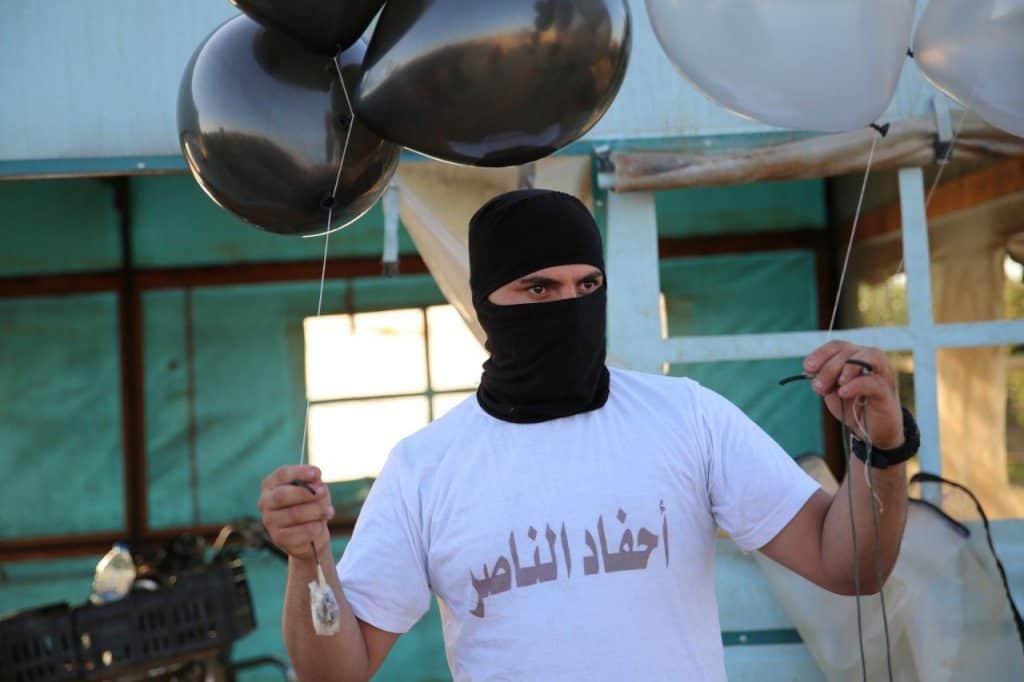
Palestinian militant factions have resumed launching incendiary and explosive-laden balloons toward southern Israel in an attempt to force the Israeli government to comply with terms reached in a ceasefire agreement earlier this year.
Palestinian factions operating under front groups such as Ibna’a al Zawari, Ahfed al Nasser and Adat Sayf al Jihadiya, resumed their campaign on Aug. 8 by posting messages and videos on jihadist social media sites claiming responsibility for the attacks.
“Watch the Gaza cover, how it is burning now as a result of Gantz’s [Defense Minister] statements as he leads the settlers to destruction. We will make the cover [Gaza border] hell, and the fire will expand in the coming hours if he does not understand the message well,” Adat Sayf al Jihadiya stated.
Other activity added to the growing instability. There were two shootings on Sunday, against Israelis working at the Gaza border and Israel Defense Forces (IDF) soldiers who responded to the incident occurred without causing injury, added to the growing instability. On Monday, Hamas’ military wing, al Qassam Brigades, conducted a daytime rocket test toward the Mediterranean sea in a show of force against Israel.
Several understandings reached between Israel and Palestinian factions since 2018 have brought about only several months of calm. Demands from Hamas that Israel is unlikely to concede to – such as ending the blockade of the Gaza Strip – have been used as a reason for factions to restart their pressure campaign even though there is no evidence that Israel ever agreed to such a demand in the first place.
Also, Israel’s response has been illogical and sometimes confusing. On Aug. 9, the IDF responded to the burning balloons by attacking an empty Humat al Thagour (al Qassam Brigades border patrol) observation post in the middle of the night. It likely cost the IDF more to fuel the attack helicopters used in the strike than what Humat al Thagour spent in constructing the observation post.
This type of response has developed into an ineffective pattern over the last two years. The IDF has signaled that as long as nobody is killed or injured by the attacks, a lackluster retaliation should be expected. This policy has not deterred the factions since they understand that based on the IDF’s history, it is unlikely they will suffer any serious consequences for their actions.
If the Israeli government is in search for peace that lasts more than a few months, it either needs to fully concede to Hamas’ demands – which will further embolden them to pressure Israel in the future – or rethink its current policy by giving its military more power to deter the factions from conducting this type of low-tech attrition campaign.







